‘Purely racist’: Inside New Zealand’s growing right-wing movement against Maori ‘co-governance’
As Australia prepares to vote on an Indigenous Voice to Parliament, one of our neighbours is grappling rising tensions over a vote they “weren’t given”.
Julian Batchelor may be the most hated man in New Zealand right now.
The evangelical author and former school principal leads a growing movement opposed to the country’s Maori “co-governance” model, attracting thousands of people to a series of packed events since the start of the year where the 65-year-old rails against what he calls “apartheid” and a “coup by stealth”.
Leading No campaigners including former Prime Minister Tony Abbott have tried to compare the Voice to Parliament to New Zealand’s co-governance – a suggestion rejected by Prime Minister Anthony Albanese – and Mr Batchelor says he has been watching the debate “very closely”.
“Because it’s a mirror image of what’s happening over here, except we’re more advanced than you,” he said.
“Whatever you do, don’t vote Yes. It’s led to a disaster in New Zealand. We weren’t given a referendum, it’s been forced upon us. It’s led to widespread corruption – corruption of the media, corruption of the Treaty of Waitangi, our founding document, the passing of legislation by stealth, the birth of apartheid and racism and racial division. New Zealand at the moment is a country on its knees and it’s all because of the co-governance agenda pushed by our government for the last six years.”
In January, Mr Albanese stressed that the Voice was nothing like New Zealand’s co-governance model. “The fact is this is not a co-governance model at all,” he said. “It’s subservient to the parliament.”
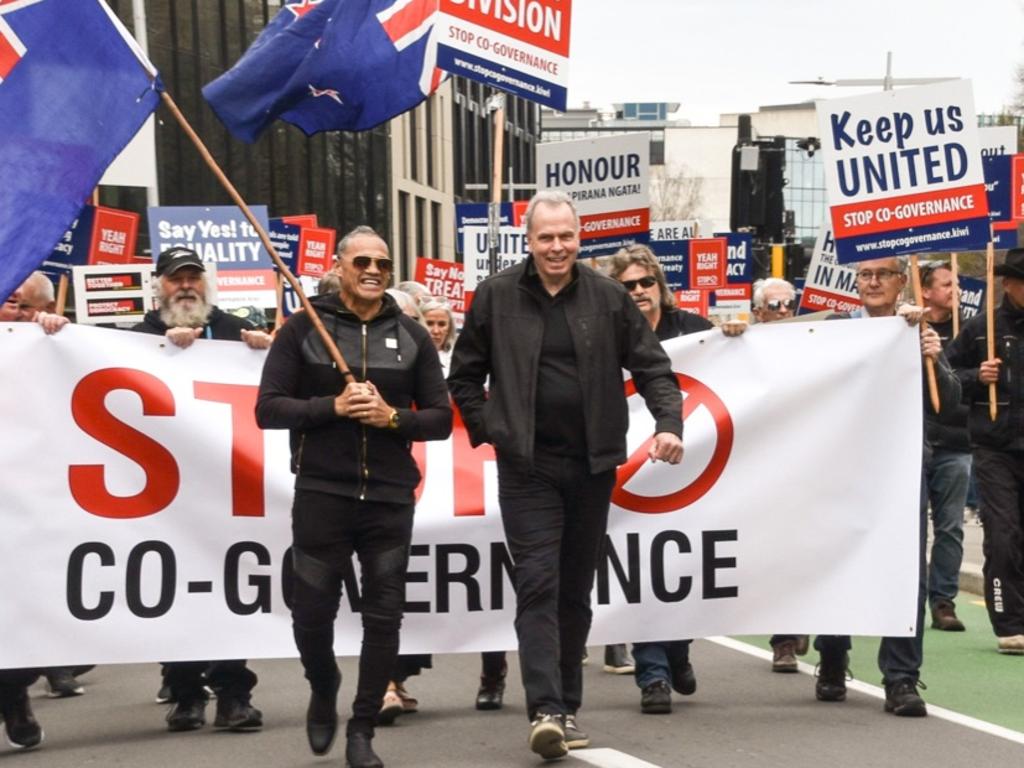
‘Purely racist’
With New Zealand heading to the polls on October 14 – the same day as Australia’s Voice referendum – the “Stop Co-Governance” roadshow events have generated a flurry of media attention and counter-protests.
Mr Batchelor has been accused of racism, spreading harmful misinformation and associating with far-right and neo-Nazi figures.
He vehemently denies being racist. Asked about the presence at his events of former National Front organiser Chris McCabe and neo-Nazi Kyle Chapman, he said, “We don’t do background checks on people who come to help. We don’t have time for that.”
His inflammatory rhetoric has outraged Maori groups – he has reportedly described teaching children to speak Maori as child abuse, and likened the words “kia ora” to “heil Hitler”.
“What co-governance is in practice is ways of ensuring that Maori voices are heard and contribute to decision-making in public policy,” said Professor Dominic O’Sullivan from Charles Sturt University.
“While some people have raised reasonable objections to that, I don’t think Batchelor’s objections have any foundation in democratic principles or inclusion – they are purely racist.”
New Zealand’s Disinformation Project, an independent research group, has taken aim at Mr Batchelor’s claims in its 2023 election monitoring.
“The most common theme in disinformation is the idea that the government, backed by powerful ‘in groups’, are engaging in mass-scale deception of the public,” it said in a report last month.
The Disinformation Project said among the election “falsehoods” was the claim that “honouring the Treaty of Waitangi will take away the rights of non-Maori as part of a conspiracy between the government and a perceived group of ‘elites’”.
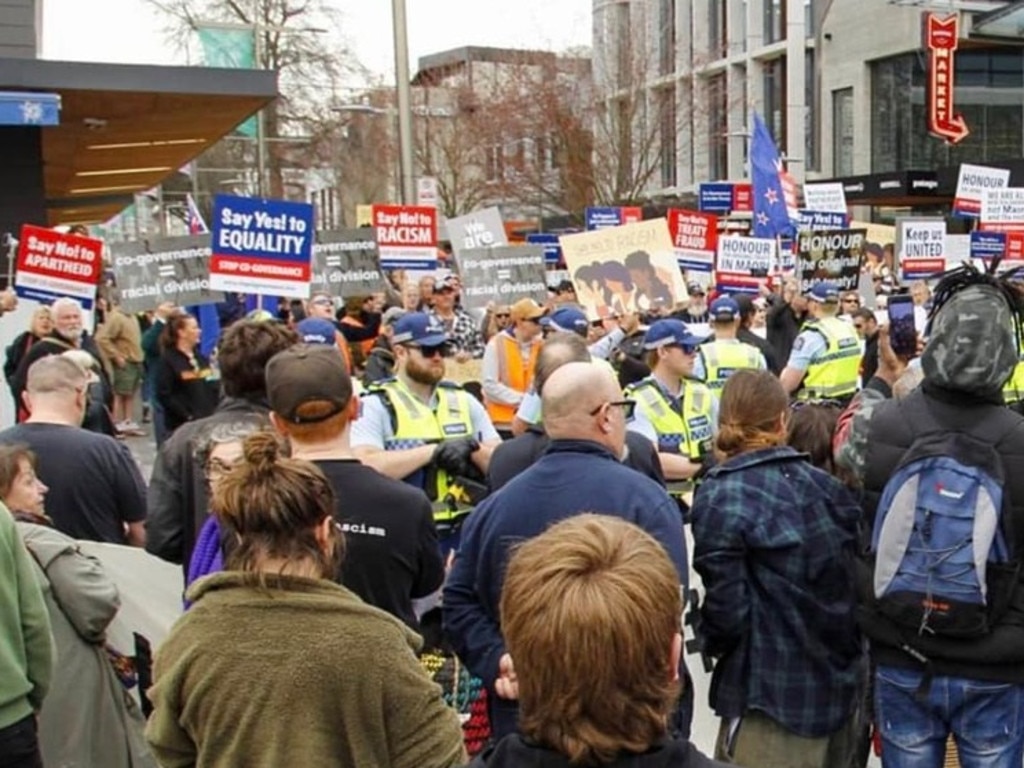
‘Growing movement’
But while the controversial speaker has emerged as the latest lightning rod in New Zealand’s culture wars, debate over Maori race relations is no longer confined to the fringes.
The topic has emerged as a key theme during the election campaign – Labour cabinet minister Kelvin Davis warned last month “everything’s at stake” in the upcoming election, particularly for Maori – and opinion polls suggest it is now a mainstream issue among voters.
“There is a growing anti-co-governance movement in New Zealand – it is, like many things, based around half-truths and misrepresentations,” said Buddy Mikaere, former director of the Waitangi Tribunal, a permanent commission which investigates impacts of Crown decisions on Maori interests.
Mr Mikaere, a historian and cultural consultant who hails from the Ngati Pukenga and Ngati Ranginui tribes in the North Island’s Bay of Plenty region, about two hours south of Auckland, said he drew “some parallels” with the Ku Klux Klan in the US.
“It trades on people’s fears and anxieties by highlighting issues that people don’t really know too much about, but can be made to look pretty scary,” he said.
“[The movement] is big enough that they get people up and out protesting about it, it’s got a reasonable following. But it’s mainly the older generation. What I’m saying is, look, just calm down – these people are going to die, and the world their grandchildren are being raised in is a far different one. Just ride it out and be patient, but in the meantime you do have to put up with some rubbish.”
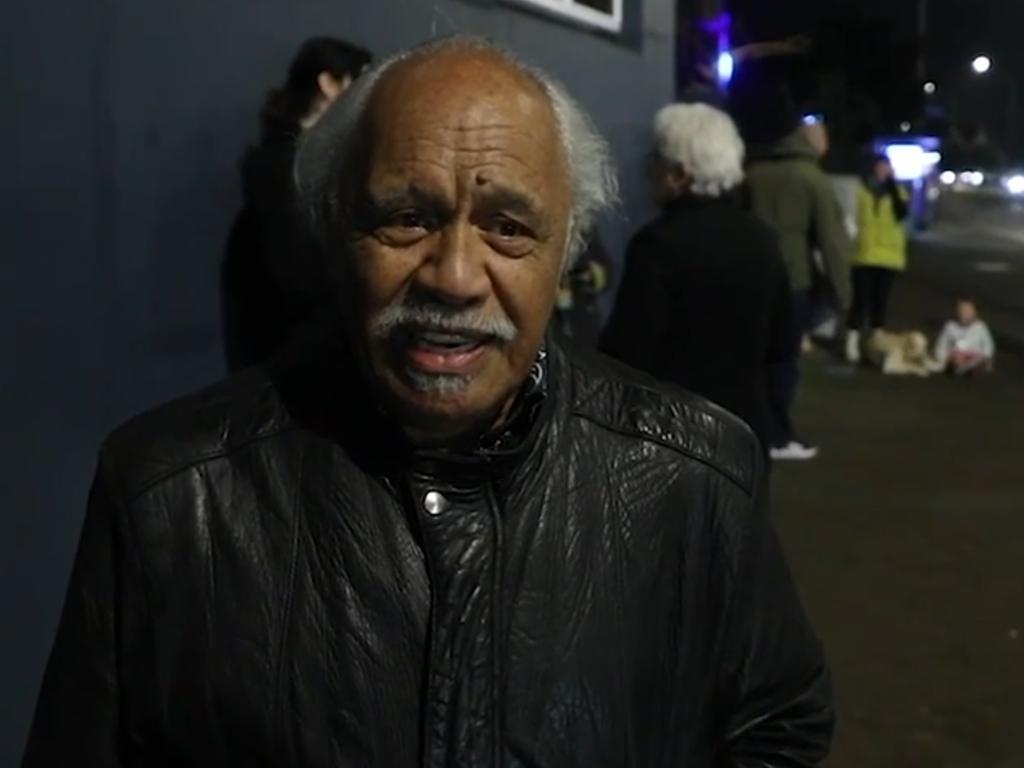
Election issue
Both ACT Party and NZ First, the two right-wing parties that opinion polls indicate could form a coalition government with the conservative National Party, have criticised co-governance and want to wind back some of the progressive reforms spearheaded by former Prime Minister Jacinda Ardern.
Among those reforms, intended to better acknowledge Maori as New Zealand’s first peoples, have been greater use of Maori language in everyday life – including the now ubiquitous usage of New Zealand’s Maori name, Aotearoa – and the renaming of government departments, such as Health New Zealand to Te Whatu Ora.
An opinion poll last month suggested nearly half – 48 per cent – of New Zealand voters believe there should be a referendum on Maori co-governance, and 45 per cent do not want more of it.
The Post/Freshwater Strategy poll of 1511 voters also found a similar pushback on Maori language – 49 per cent said government departments should be known by their English name, and 45 per cent opposed a currently stalled proposal for road signage to be written in Maori as well as English.
“New Zealanders don’t like being divided by race, no one asked them if it was OK and they want it to stop,” ACT leader David Seymour told The Post in response to the poll.
“Most people I meet want to cherish the Maori language and culture, but they also want to be able to navigate the government they pay for in a language they understand. Forcing the Maori language on people causes them to resent it, which is a massive own goal. There is clear support for ACT’s proposal to have a referendum on Treaty principles, and a say on co-government. Dividing people by race has never worked and it has no place in a modern multiethnic liberal democracy.”
The National Party has said it does not support a co-governance referendum.
“I think the National Party is fearful of the social divisions it would create,” said Prof O’Sullivan. “It wouldn’t just be any old political debate. It would be one with race at its heart, and it would embolden racism in a way that we probably don’t often see in New Zealand.”
But the National Party and ACT have vowed to dismantle the Maori Health Authority, an independent body established last year to “reduce Maori health inequities”.
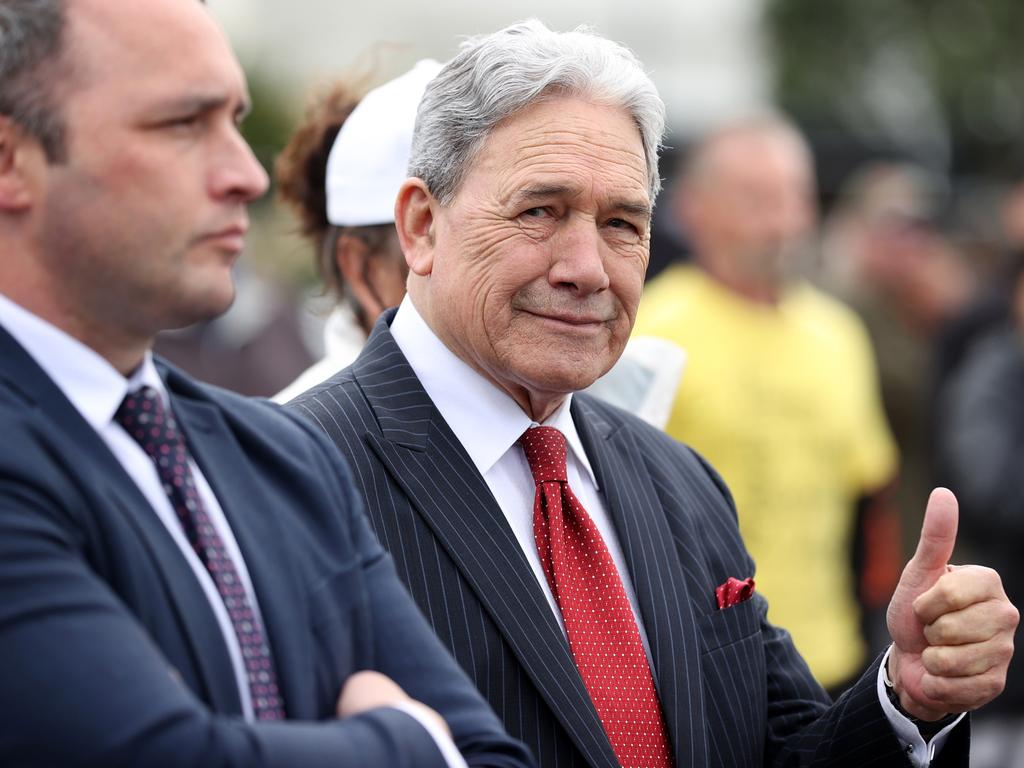
‘Secret agenda’
NZ First leader Winston Peters, who is half Maori, has vehemently opposed co-governance.
“There is a secret agenda,” Mr Peters told Australian broadcaster Alan Jones last September.
“Without any mandate, without any vote, without any pre-election campaigning by the Labour Party, out of left field straight after the 2020 election … they have been pushing a separatist agenda where there will be this very innocent word called co-governance. But what it really means is two governments.”
Mr Peters has also grabbed headlines with racially charged statements, such as telling supporters in Nelson last month that Maori “are not Indigenous”.
“Every tribe will have in its ancestry where it came from, and it’s not New Zealand,” he told the NZ Herald after the meeting. “Why are we lying to each other? We should be believing in truths and not myths.”
According to Mr Mikaere, the big issue in New Zealand, just as in Australia, is cost of living.
“But there’s more mileage in raising the race issue and appealing to a particular demographic,” he said. “As far as I can see, that’s exactly what Winston and some of the other political parties are aiming to do – let’s not deal with the real issues. It’s political expediency at its worst.”
Last week, a group of Maori elders signed an open letter condemning what they described as “unacceptable levels” of racism from political candidates in this election.
“Race-baiting for votes is not new here in Aotearoa,” the letter said.
“But this election, the dog whistling and the outright public displays of racism from political candidates have increased to unacceptable levels. We need to draw a line in the sand, put an end to this divisive style of politics because Aotearoa, we are better than that.”
Prof O’Sullivan described Mr Seymour as the “Jacinta Price of New Zealand politics”.
“They are both Indigenous people trying to diminish Indigenous distinctiveness, and people who are willing for their equal rights and equal participation in society to be on other people’s terms,” he said.
Mr Peters, meanwhile, represents a “strand of Maori political thought that says Maori interests are best served” by more fully embracing western culture, according to Prof O’Sullivan.
“Peters’ objections [to co-governance] are not raised in racial prejudice,” he said.
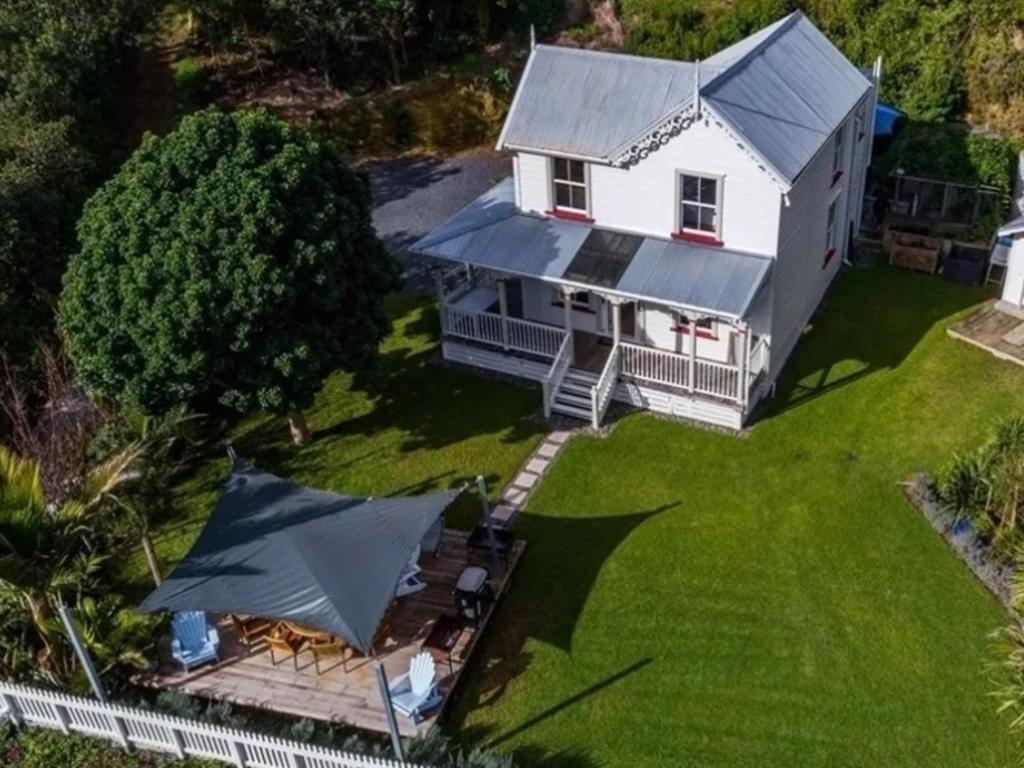
Letter was ‘last straw’
Under the Treaty of Waitangi, an agreement between the British Crown and Maori chiefs signed in 1840, the Maori were guaranteed ongoing authority over their own affairs.
Since 1867, Maori have been represented in parliament through designated seats, and co-governance has existed in various forms for many years including in local government and environmental management.
Mr Batchelor claims things “started to go really wrong” in 1975 with the passing of the Treaty of Waitangi Act, which established the Waitangi Tribunal. “It was quickly hijacked by activists,” he said.
In his 31-page booklet outlining his case – which drew threats of fines from New Zealand’s Electoral Commission – Mr Batchelor claims that the tribunal “became a scam, a place where any Maori anywhere could bring a grievance” and be awarded cash and assets, and where “oral testimonies were accepted as fact”.
His own activism was sparked by a cultural heritage dispute over his property in Bay of Islands in the Far North District of the North Island, about three hours from Auckland.
In 2008 he purchased Oke Bay Lodge, a run-down two-storey villa and wedding venue located on a narrow piece of land between Hauai Bay and Oke Bay. Construction of a 3m retaining wall sparked a long-running stoush with council, and in 2020 a local tribe applied to Heritage New Zealand to have part of his property designated wahi tapu, or a sacred site, due to its history as a burial place.
Mr Batchelor says he did not see the notifications from the agency until he received a letter saying the application was approved in March 2022.
“Heritage New Zealand sent me a letter saying your land has been reclassified as what they call wahi tapu – that meant that Maori had control of my land but I still pay the rates,” he said.
“It basically halved the value of my land. They came up with some story that some body had been dragged across the land in 1700 or something and therefore the land was sacred to them. They do not need proof because they say Maori operate with oral history and it cannot be challenged.”
More Coverage
Mr Batchelor, who still intends to challenge the ruling, said the letter was “the last straw”.
“I said, I’m mobilising to tell New Zealand about this,” he said. “It’s happening to a lot of New Zealanders but they’re too afraid to say anything for fear of retribution.”






